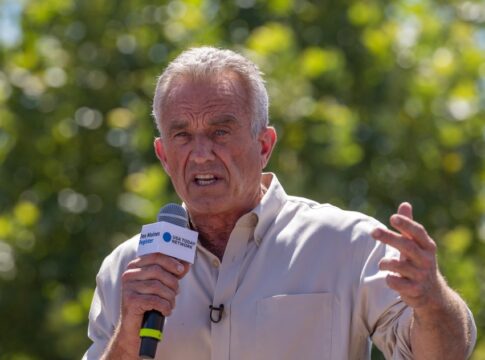Health and Human Services Secretary Robert F. Kennedy Jr. has proposed compensating families affected by autism while facing significant backlash from advocacy groups who call his characterization of the condition ableist. His comments specifically addressed the estimated 25% of those with autism who are nonverbal and require substantial support. Kennedy promised unprecedented studies to identify environmental toxins he believes cause autism.
Kennedy’s Compensation Proposal and Controversial Comments
During a recent press conference, Robert F. Kennedy Jr. sparked controversy with his proposal to compensate families affected by autism. Kennedy, serving as Health and Human Services Secretary, focused particularly on individuals with more severe manifestations of autism spectrum disorder. His comments immediately drew criticism from autism advocacy organizations, who viewed his characterization of autism as problematic and his terminology as outdated.
Kennedy made several statements during the press conference regarding the challenges faced by some individuals with autism. He specifically highlighted the approximately 25% of those diagnosed who face significant limitations in their daily functioning, particularly those who are nonverbal.
Health and Human Services Secretary Sec. Robert F. Kennedy Jr. said "autism destroys families" while calling the neurological and developmental disorder "preventable" during remarks on Wednesday. #MAHA pic.twitter.com/fiL4MIJWYQ
— FLAHUSTLA (@FLAHUSTLA) April 17, 2025
Kennedy’s Focus on Autism’s Environmental Causes
A central component of Kennedy’s approach is his commitment to investigate what he describes as environmental causes of autism. He has promised to launch new research initiatives aimed at identifying specific environmental toxins he believes contribute to autism, despite the scientific consensus that contradicts some of his assertions. The CDC has consistently maintained that vaccines, a frequent focus of Kennedy’s past statements, are not associated with autism development.
Kennedy later clarified that his statements were specifically addressing those with more severe manifestations of autism. The National Autism Association estimates that approximately 40% of children with autism do not speak. Kennedy’s promise to launch “unprecedented” studies to identify environmental factors runs counter to previous extensive research that has failed to establish such connections for many of his suggested causes.
Health and Human Services Secretary Robert F. Kennedy Jr. held a press conference on Wednesday talking about new Autism findings from the CDC. During the event, RFK said Autism is an ‘epidemic’ that ‘destroys families.’
MORE: https://t.co/Eo1dYgjD6V pic.twitter.com/UDqFjryrkt
— KSNV News 3 Las Vegas (@News3LV) April 16, 2025
Rising Autism Rates and Current Understanding
CDC data indicates that autism diagnoses have increased significantly in recent years. Current statistics show that one in 31 children were diagnosed with autism by age 8 in 2022, an increase from one in 36 in 2020. However, health experts attribute this rise primarily to improved screening protocols, greater awareness, and expanded diagnostic criteria rather than environmental factors.
In his clarification following the initial backlash, Kennedy emphasized that many individuals with autism lead independent and fulfilling lives. “There are many kids with autism who are doing well. They’re holding down jobs, they’re getting paychecks, and they’re living independently. But I was referring specifically to that 25 percent—the group that is nonverbal,” Kennedy stated. This qualification has done little to quell criticism from those who felt his original characterization was harmful.
Scientific Consensus vs. Kennedy’s Claims
The scientific community largely disagrees with Kennedy’s assessment of autism’s causes. Numerous studies have investigated potential environmental triggers for autism without establishing the connections Kennedy suggests. The CDC explicitly states that vaccines are not associated with autism development, based on extensive research. Kennedy’s promise to identify environmental toxins as the primary cause of autism stands at odds with the current scientific understanding of the condition’s complex origins.
While families caring for individuals with severe autism often face significant challenges, including financial burdens and limited support resources, the framing of compensation for “injury” has struck many as reinforcing outdated and harmful views of neurodivergence. Kennedy’s initiatives will likely continue to generate debate among medical professionals, advocacy groups, and families affected by autism as they develop.


